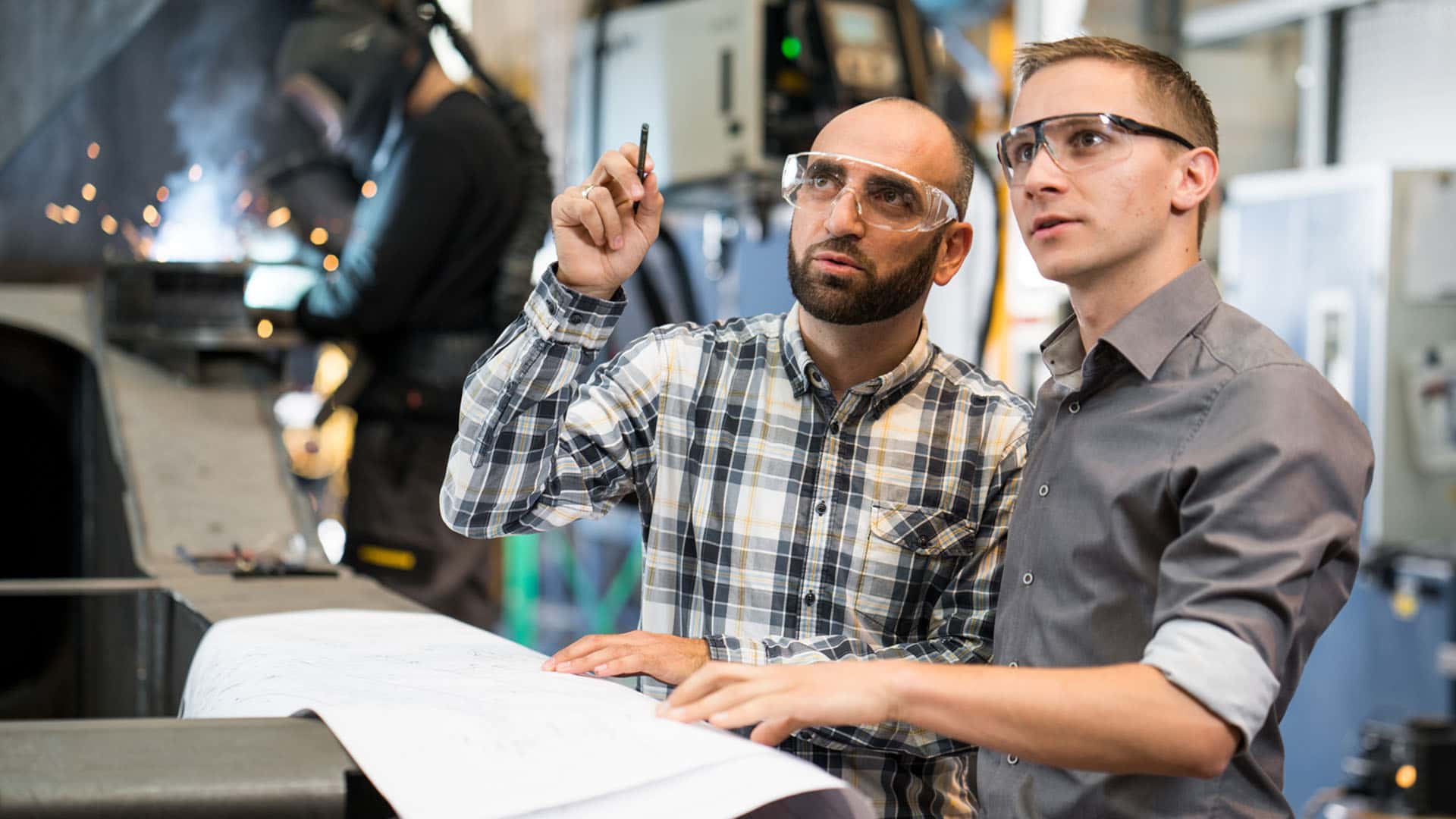 Group
GroupPress releases | 23/09/2022
Two experts, one product: Drive technology and digitalization around the LR 1700-1.0
At Bauma 2022, Liebherr is presenting the LR 1700-1.0 crawler crane. It follows on from the LR 1600/2. With its increased lifting capacity and easier assembly, the LR 1700-1.0 is particularly suitable for erecting wind turbines. We talk to Wolfgang Boos, product manager for digital products, and Philipp Federle, head of the undercarriage design department, about alternative drive technologies and digital tools.
Mr Boos, how does a customer from the wind industry know whether the LR 1700-1.0 or another crane type is better suited to their purposes?
Boos: “Liebherr offers a whole range of tools that support crane operators or dispatchers in carrying out the upcoming lift as efficiently, simply and quickly as possible. A key element of this is the Crane Finder, which can be accessed via our MyLiebherr customer portal. The tool calculates for the customer which crane is suitable for the upcoming lift.
The Crane Finder is optimised for all output devices: For use on the PC or directly on the smartphone or tablet on the construction site. This means that the crane operator can use the tool to find out directly on site how to set up the crane and which telescopic path to select.”
And how does the Crane Finder actually work?
Boos: “When developing the Crane Finder, we attached great importance to easy handling: First the user enters height, load and outreach. The Crane Finder then shows which crane models in which configuration are suitable for this lift – from the smallest possible to the largest model. If the user selects a crane from the list, he receives further useful information about the lift – such as the optimal telescoping path, which saves crane operators a lot of time.”
The LR 1700-1.0 not only combines economical transport and high performance. The undercarriage of the crane has a Liebherr diesel engine as standard, which can be fuelled with HVO as well as fossil fuels. What are the advantages of this, Mr Federle?
Federle: “HVO, i.e. hydrogenated vegetable oil, has significantly lower CO2-emissions – up to 90% – compared to classic diesel. Both soot in older vehicles without particle filters and NOx emissions decrease when HVO is used. With regard to our products, HVO has the further advantage that the machines neither have to be newly developed nor exchanged or retrofitted. They can continue working with HVO immediately.”
Let’s take a look at consumption: What is the general impact of using HVO in the LR 1700-1.0 and are there other advantages?
Federle: “When refuelling with HVO, the volumetric consumption is a little higher, but different application scenarios have a much greater influence here. In addition, the fuel is more resistant to low temperatures. Another advantage is that HVO can be used either as a pure fuel or as an additive to classic diesel, depending on preference and availability.”
Couldn’t the LR 1700-1.0 have been fitted with a battery?
Federle: “At Liebherr, we fundamentally pursue an approach that is neutral to all technologies. All our drive technologies are adapted to the machine and the general conditions at the place of operation. This approach shows that electrification is not always sensible or even possible. For example, construction sites in remote, poorly accessible locations do not always offer a reliable charging infrastructure. For example, when erecting wind turbines, infrastructure and power supply are first created by the LR 1700-1.0. Nevertheless, an energy-intensive machine must work reliably. Moreover, with electricity as the energy source, you need a different basic vehicle than with HVO, which means a conversion for every use is technically not possible.”
So the choice of energy source plays just as important a role in efficient and effective use as the choice of crane model. What else is necessary to offer customers, operators and crane drivers the best possible use?
Boos: “Here we are again at our customer portal MyLiebherr: it is the central place for all relevant information and services for the LR 1700-1.0 – but also for all other crane models. A few mouse clicks take you to documentation, the spare parts catalogue, the Crane Planner 2.0 or e-learning. If the user registers his machines in MyLiebherr, there are further synergy effects: For example, the machines that the customer has in his fleet will soon be highlighted in the Crane Finder results list.”
And what does the future development of MyLiebherr look like?
Boos: “We are constantly working to make the user experience even better. This includes our “Performance" telemetry solution, which we will also be presenting at Bauma. With a built-in modem, the machine’s position and operating data can be transmitted to the operator here. This makes it possible to react in real time in order to operate the machine even more economically. Together with the telemetry solution and the relaunch of the MyLiebherr interface, the customer portal is increasingly developing into a fleet management tool. With this, operators can manage all their Liebherr machines and achieve efficiency benefits over the complete life cycle.”
Downloads
Here you will find the press release and images for download.
Contacts

Liebherr-Werk Ehingen GmbH
89584 Ehingen
Germany







